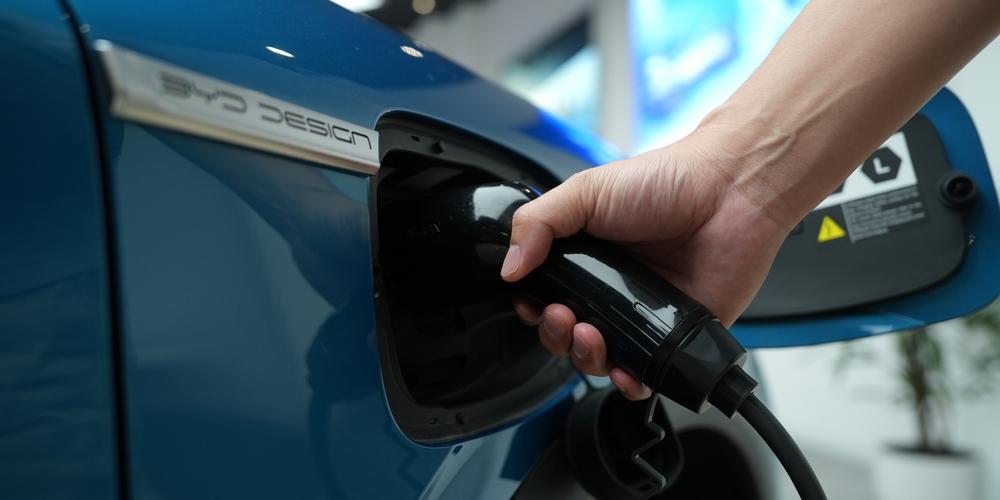
Attention towards electric driving is growing, but that does not immediately translate into a rush for electric cars. Currently, only 4% of passenger cars in Belgium are fully electric, while hybrid cars make up around 12% of the total fleet. Traditional petrol and diesel cars remain the dominant choice in our country. "This is mainly due to the purchase price," says VUB professor Lieselot Vanhaverbeke. "But those who overcome this threshold soon realise that driving electric actually leads to savings."
Around 80% of electric cars and 55% of hybrids in Belgium are registered in the name of companies. "The average electric car driver is a highly educated man in the age group 35-55, who belongs to the middle class and lives in a detached house with a private charging point," says professor Lieselot Vanhaverbeke, who is affiliated with the Business Technology and Operations (BUTO) department and the Electromobility Research Centre (MOBI) at the Free University of Brussels. For private individuals, the step towards an electric vehicle remains larger, although interest is clearly present. "In our European survey of more than 20,000 respondents, 57% of drivers of non-electric vehicles indicated that they are considering making the switch in the short, medium, or long term."
"Electric batteries can manage many more kilometres than initially thought, which helps electric cars retain their value"
The benefits are clear
"Where social factors such as status used to play a role, people today clearly choose out of conviction," says the professor. "Electric vehicles have a significantly lower climate impact over their entire lifecycle – from production to recycling – compared to petrol and diesel cars." Because they do not emit air pollutants, electric cars also contribute to better air quality. "This is especially important in large cities like Brussels, where air quality is far below acceptable levels. A quick transition to electric driving can bring about a huge improvement here."
Barriers are disappearing
Barriers such as "charging stress", the so-called limited battery capacity, and unclear costs are increasingly becoming a thing of the past, according to the professor. "Thanks to better batteries and advanced algorithms, range is no longer an issue. For long distances, you can rely on fast-charging stations, which are springing up like mushrooms. The charging deserts of the past are gone." Home charging is also becoming increasingly easier. "Cities are fully investing in public charging points on the street, so you don’t necessarily need a private charging point. With the introduction of the European AFIR legislation, charging points are also required to display their rates clearly, making electric charging as transparent as refuelling." Another advantage is the value retention of electric cars. "Electric batteries can manage many more kilometres than initially thought, which helps electric cars retain their value."
"European players are lagging behind in terms of technology compared to other continents"
What’s still holding back doubters?
Despite significant progress, some barriers remain. "The cost price is still a threshold," says the professor. "This is especially true for young people, who are clearly convinced of electric driving but don't have enough budget." The European survey also reveals that 25% of respondents are not at all interested in purchasing an electric car. "A lower cost price can help to pull this group over the line, as well as a strong second-hand market. We must ensure that our second-hand cars do not disappear abroad but remain available for Belgian buyers who find a new electric car unaffordable." Once you get over the barrier of the purchase price, electric driving actually saves money. "You pay much less for consumption, and an EV requires very little maintenance. If you factor in operational costs, an electric car is currently cheaper than a fossil-fuel vehicle in total. It’s essential to keep pointing out these advantages. Just like with any new technology, there are early adopters who embrace the change immediately, and followers who make the switch later. Once people experience it for themselves, they quickly realise that the feared limitations are much smaller than anticipated and they switch anyway."

Lieselot Vanhaverbeke
Clear policy is crucial
The sudden abolition of the government subsidy for electric cars caused quite a stir in our country. "It is incomprehensible that a measure that would have only lasted another month was abolished so abruptly," says the professor. "We know that similar measures abroad have had a particularly strong effect. Such decisions cause a shock effect in consumer behaviour and undermine trust. Consumers need clarity about the priorities of policymakers." The growing resistance to the European norm, which states that all new vehicles must be CO2-neutral by 2035, is also a cause for concern. "There is heavy lobbying to relax this standard, even though it was communicated a long time ago. No one should be surprised now. It is in everyone’s interest to stick to that ambition. Especially for the climate, but also for our economic growth. Affordable cars are currently mainly made in China. If extra taxes are imposed there soon, affordable cars might face barriers to entering our market. European players are lagging behind in terms of technology compared to other continents. A catch-up move could help stimulate the European economy." Europe is also currently dependent on external players for the so-called raw materials for electric vehicles. "These components are mainly produced on other continents, where working conditions sometimes raise concerns. The stronger we focus on recycling in Europe, the less dependent we become on those suppliers. Fortunately, with Umicore, we have a strong player on board."
The future is electric
According to the professor, hybrid cars will gradually disappear. "It remains a transition technology. Ten years ago, such a car combined the advantages of an electric car in the city with the comfort of a petrol car for long distances. That advantage is outdated today. To improve the environmental impact of mobility, we need to electrify. This applies not only to passenger cars but also to freight traffic. Even other modes such as public transport are making the switch to electric driving, partly due to the lower costs. I expect 100% electrification to fully take hold." This evolution also offers interesting opportunities for students. "Engineering courses and studies in electromechanics have enormous potential. The same goes for social sciences focused on sustainability. Electric driving is just one link in the greening of our society, where each of us can contribute."